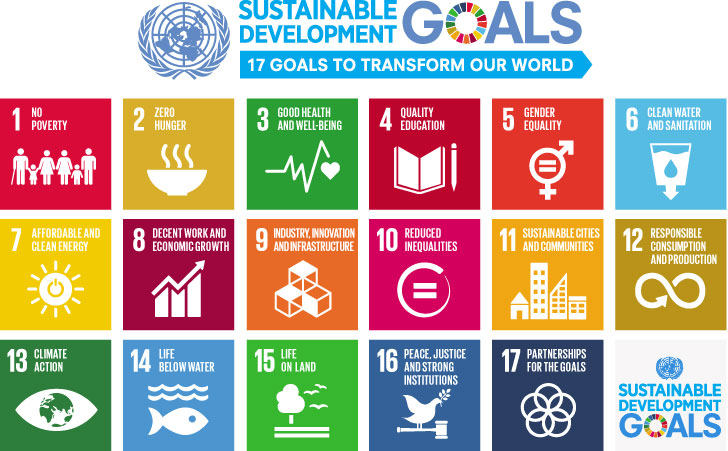For many foundations, the Sustainable Development Goals (SDGs) provide a means to direct their efforts according to a larger, internationally recognised development framework, potentially increasing the value of those efforts by dovetailing them with those of others.
Portugal’s Calouste Gulbenkian Foundation (CGF) saw in the SDGs an opportunity for the Foundation to be clearer in communicating its intentions and more focused on its mission, while at the same time providing a coherent basis for collaboration with other sectoral and non-sectoral institutions. Internally, too, the SDGs offered an opportunity for cohesion and the strengthening of a sense of common purpose. CGF engaged Rockefeller Philanthropy Advisors (RPA) to help align its work more closely with the SDGs. RPA worked with CGF on a foundation-wide analysis, devising metrics to assess progress and developing implementation and communications tools for both internal and external use.
The means used in the analysis are at least as interesting as the results and might help other organisations navigate similar exercises. Given the complexity of a large foundation with many areas of interest, some of which weren’t an obvious fit with the SDGs (for example, the work done on arts and culture), RPA met with each department to understand their priorities and goals and assess current activities and programs. This enabled RPA to help map key programs—including the more difficult-to-align arts and culture initiatives – to specific SDGs.

What came out on top for CGF’s work on arts and culture were targets that focused in on education, sustainable cities and communities, enhancing scientific research, and empowering youth. Specifically:
- SDG 4.7 – Education: “By 2030, ensure that all learners acquire the knowledge and skills needed to (…) appreciation of cultural diversity and of culture’s contribution to sustainable development”)
- SDG 11.4 – Sustainable Cities and Communities: “Strengthen efforts to protect and safeguard the world’s cultural and natural heritage”.
- SDG 9.5 – Enhance scientific research, (…) encouraging innovation and substantially increasing (…) public and private research and development spending
- and SDG 4.4 – Increase the number of youth and adults who have relevant skills.
So far…
What advice do CGF and RPA have as a result of this process so far? Internally, while the SDGs provide a valuable core around which to rally, the process of identifying common themes, and evaluating and reporting on the extent to which they are being addressed may require a culture shift within an organisation. All staff need to be brought into discussions about this and key figures, from management to board of trustees, need to support it.
Second, staff who are unused to looking at their work through an SDG lens will need time and support to adjust. Listening to their concerns and having templates, for instance, for report writing may help.
Third, this adjustment is likely to require additional resources which foundations should be ready to commit if they are serious about aligning their work with the SDGs.
Finally, CGF and RPA say “keep it simple”. Based on the organisation’s main purpose, identify two or three main goals of each grant or programme, which will help to identify any fit with the SDGs and to come up with ways to assess progress.
Dissemination of what CGF is learning will have implications for other foundations within and outside Europe, and the Foundation has already begun reporting on SDG alignment in its Annual Report and, since late 2020, has been sharing its results with the European Foundation Centre and the Centro Português de Fundações (Portuguese Foundation Center) as well as with RPA’s Theory of the Foundation initiative.
For more information, visit gulbenkian.pt and rockpa.org.
Margarida Espírito Santo is Deputy Director for the Strategy and Planning Unit at the Calouste Gulbenkian Foundation. Donzelina Barroso is Director of Global Philanthropy at Rockefeller Philanthropy Advisors. And Renee Karibi-Whyte leads knowledge development and communications for Rockefeller Philanthropy Advisors.








Comments (2)